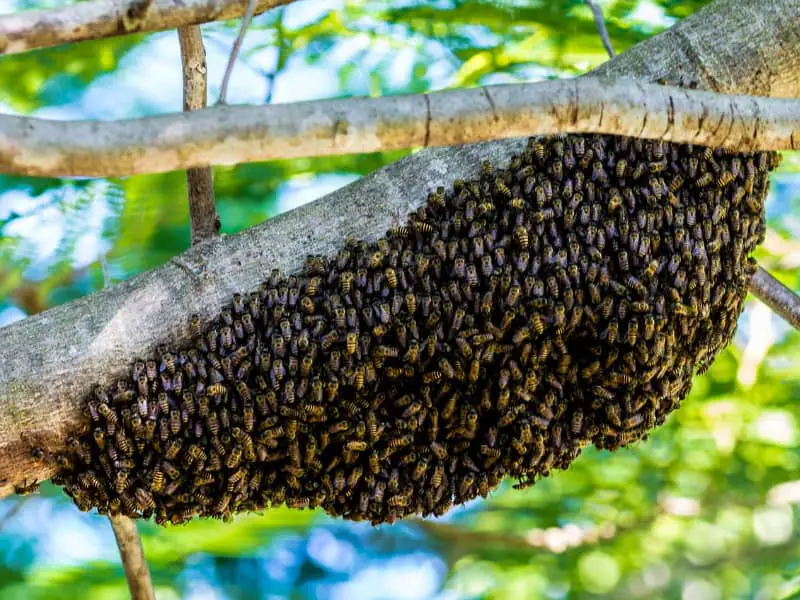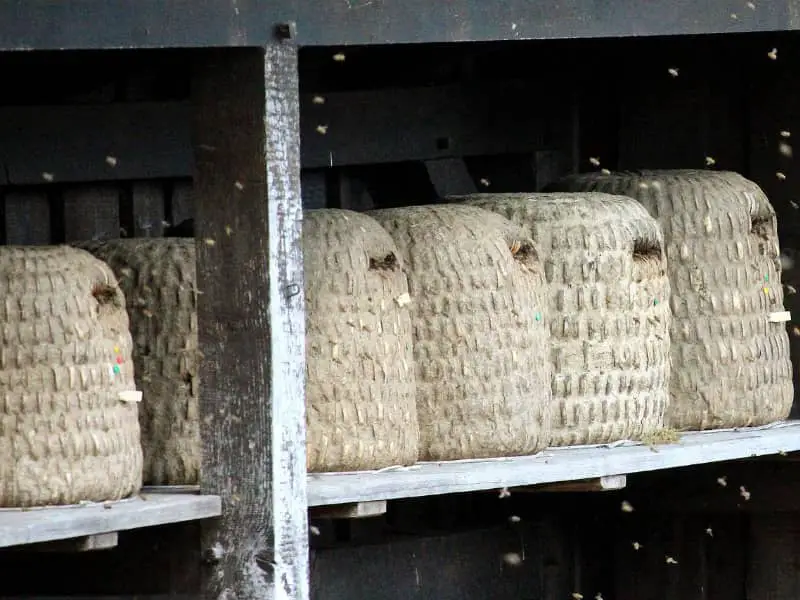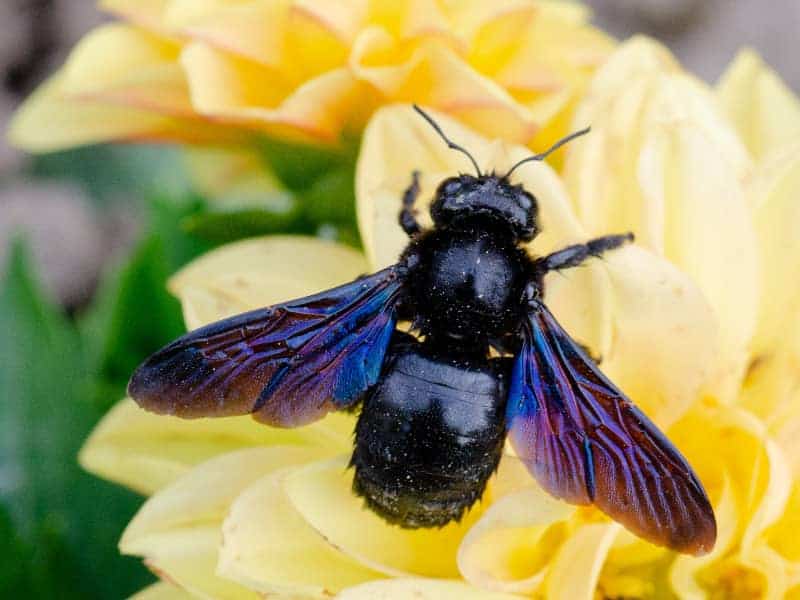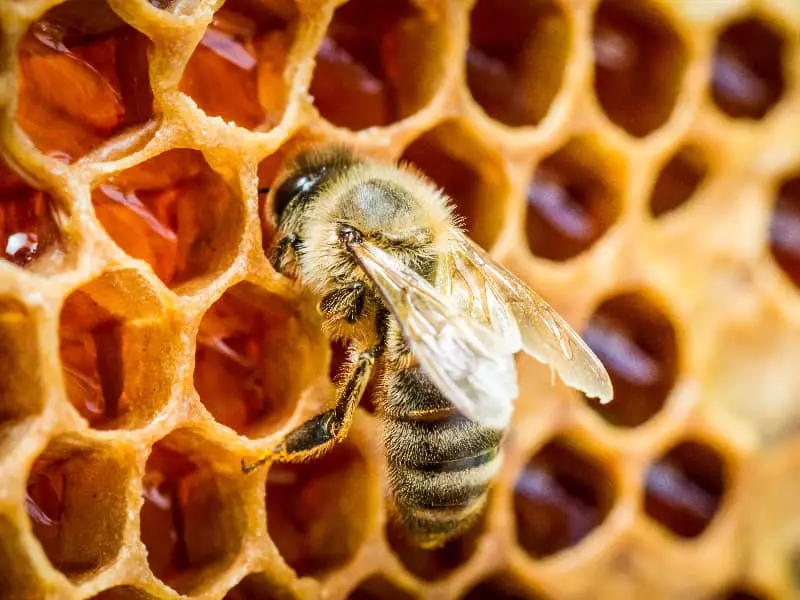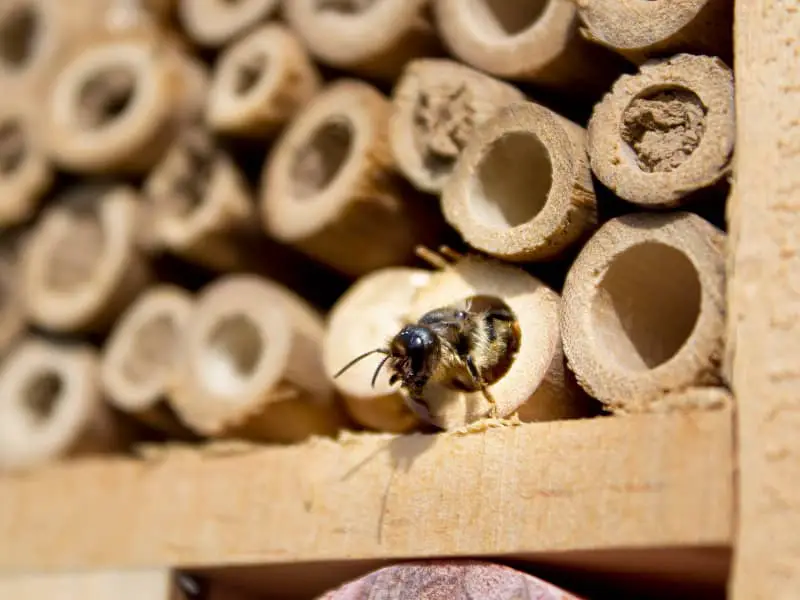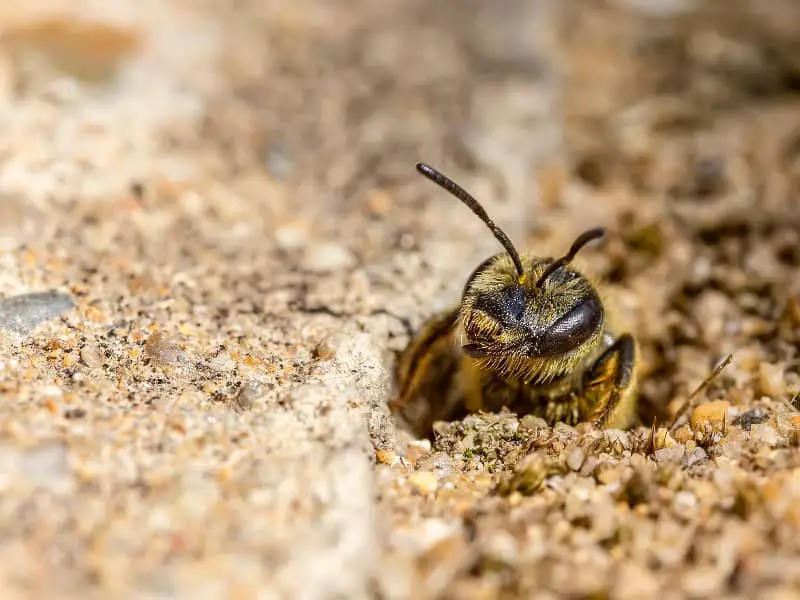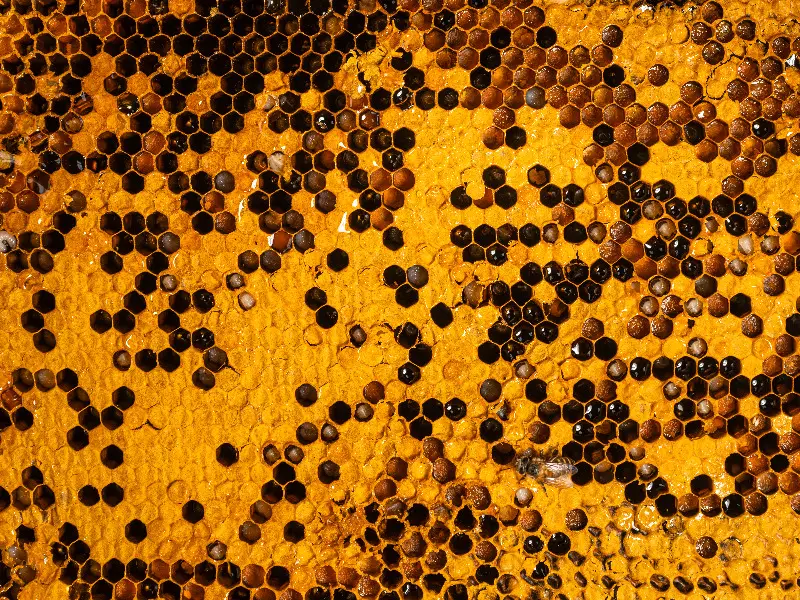
Bee Bread
In a world full of culinary wonders and scientific discoveries, there are still natural phenomena that are astonishing in their simplicity and efficiency. One of these wonders is bee bread, a superfood straight from the hive. But what exactly is it? How is it made and what valuable ingredients are hidden in it? Dive with me into the fascinating world of bee bread.
What is bee bread actually?
Bee bread, often referred to as perga, is not to be confused with the honey or pollen that most of us are familiar with. It is fermented flower pollen that the bees store in their combs. There, the bees cover it with a mixture of honey and saliva, which starts a fermentation process. The result of this process is bee bread, a food that keeps the bees alive during the colder months.
What are the benefits of bee bread for bees?
Bee bread is a main source of food for bees, especially during the months when flowers are not in bloom. It is rich in proteins, vitamins and other essential nutrients that bees need to stay healthy and perform their daily tasks. While honey serves as a source of energy for bees, bee bread provides the necessary nutrients for growth and reproduction.
Why is bee bread also valuable for humans?
When you look at the rich ingredients of bee bread, it quickly becomes clear why it is also considered a superfood for humans. It contains not only proteins, but also vitamins, minerals and antioxidants. These nutrients can benefit the human body, whether by strengthening the immune system, promoting digestion or as an energy booster.
How is bee bread harvested?
Harvesting bee bread is a careful process. Beekeepers must ensure that they do not take too much so as not to deprive the bees of their essential food source. Usually, the bee bread is scraped out of the combs after the excess honey has been removed. It is then dried to extend its shelf life.
How can you integrate this bread into your diet?
The introduction of bee bread into the diet is quite simple. It can be enjoyed pure, but also serve as an addition to smoothies, mueslis or yogurts. Due to its nutty, slightly sweet taste, it is a tasty and healthy addition to many dishes. However, it is recommended to start with small amounts and gradually increase the intake to get the body used to it.
Are there any side effects or risks associated with taking it?
As with any natural product, there are potential risks associated with bee bread. People with an allergy to pollen or bee products should exercise caution before ingesting it. In rare cases, allergic reactions may occur after consuming bee bread. It is therefore advisable to perform an allergy test before regular intake.
The topic of bee bread opens a door to a fascinating aspect of nature and shows how bees and humans can benefit from each other in many ways. Not only is it a food source for bees, but it is also a potentially nutrient-rich superfood for humans. By learning more about bee bread and incorporating it into your diet, you can reap the benefits of this wonderful natural product.
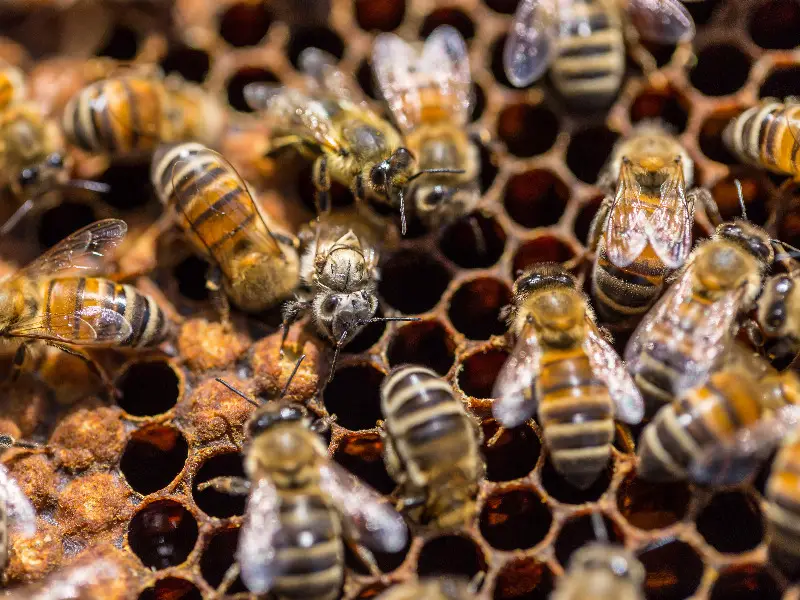
The historical background of bee bread
Bee bread is by no means a newly discovered delicacy. Knowledge of the healing and nourishing properties of this bee product was already present in ancient times. Many cultures, including the ancient Egyptians and Greeks, valued bee bread for its vitalizing effects. It served not only as a source of food, but also as a medicine to treat various diseases and improve physical condition.
The scientific facts behind bee bread
Scientific studies of bee bread confirm many of the traditional views about its health benefits. It contains over 250 active substances, including amino acids, lipids, vitamins, macro and micro elements. This nutritional complexity makes bee bread one of the most nutrient-rich foods found in nature.
Of particular interest is the high content of antioxidant compounds in bee bread. These help neutralize free radicals in the body, which can damage cells and contribute to aging. This antioxidant effect can help reduce the risk of many chronic diseases.
Difference between bee bread and other bee products
Often bee bread is confused with honey or pure pollen. But there are significant differences. While honey is the sweet gold of bees and primarily serves as an energy store, pollen is the main source of protein for the bee colony. Bee bread, on the other hand, is fermented pollen, increasing its nutrient density and bioavailability. This fermentation process makes bee bread easier to digest and increases the absorption rate of the nutrients it contains.
Storage and shelf life of bee bread
Bee bread, if stored correctly, has a relatively long shelf life. It should be stored in a cool, dry place, ideally in the refrigerator. There it can be kept for up to a year without losing quality. However, it is important to protect it from moisture, as this can restart the fermentation process and spoil the product.
The environmental impact and importance of sustainable beekeeping
Bees play a crucial role in our ecosystem by pollinating plants. Therefore, it is important that sustainable practices are followed when extracting bee products such as bee bread. Over-extraction of bee bread can jeopardize the survival of a bee colony, especially during times when other food sources are scarce. Therefore, when purchasing bee bread, it is critical to ensure that it comes from sustainable and responsible beekeeping practices.
The fascination with bee bread is growing steadily as more and more people realize the benefits of this natural superfood. It is not only an enrichment for the diet, but also a testimony to the wonder of nature and the close relationship between bees and humans. By choosing sustainably sourced bee bread, you can do good for both your own health and the environment.
- Organic quality: For you, this means uncompromisingly good quality, with a special focus on natural and environmentally friendly husbandry conditions, i.e. no pollutant-emitting industries or highways in the vicinity. In order to avoid traces of pesticides in the honey, beekeepers must also set up their apiaries in a place where mainly organic crops or wild plants are in bloom within a radius of three kilometers.
- ✅ EASILY TRUSTABLE: A real vitamin bomb - definitely easier to digest than synthetic multivitamin tablets. Also an absolute must for every (strength) athlete as a protein source.
- ✅ VALUABLE SNACK: In between pure, in your muesli or yogurt a tasty and healthy food supplement. A real energy bomb for breakfast
- ✅ THE BEST OF THE BEES: Bee bread offers you far more vitamins than honey, and is also far easier to digest due to its natural fermentation. One teaspoon covers your entire daily requirement of many nutrients
- ✅ ENERGY MIRACLE: Our bee bread contains many satiating proteins, energy-giving sugars, amino acids, and almost the entire spectrum of vital minerals and vitamins. and other first-class ingredients. The flavonoids also contained have antioxidant properties and thus serve as radical scavengers
- 100 % natural, without additives
- Increase your energy - take 1 or more teaspoons per day, preferably in the morning.
- Bee bread has a great variety of minerals and has high amounts of iron, cobalt, phosphorus, calcium. It is one of the richest natural foods that contain selenium. Bee bread is also an excellent source of potassium and vitamins of the B group.
- Please note that color, taste and texture may vary depending on the harvest season
- NATÜRLICHES BIENENBROT - unser Perga hat seinen Ursprung in der freien, wilden Natur Bulgarien, fernab jeglicher industrieller Landwirtschaft
- NATURREINE PREMIUM-QUALITÄT - in sorgfältiger Handarbeit gewonnen, schonend hergestellt und abgepackt - ohne jegliche Zusätze, Natur pur!
- GETESTET & ANALYSIERT - in einem deutschen Labor wird das “Brot der Bienen” auf Rückstände geprüft. So können wir sicher sein, ausschließlich Premium-Qualität anzubieten
- FÜR DEINE BEWUSSTE ERNÄHRUNG - aktive Menschen schätzen die leicht verdaulichen Bestandteile von naturbelassenem Bienenbrot, versuche es selbst
Author

-
Garden animal - A life with nature
Welcome to my animal blog! My name is Dirk and I am happy to take you on my journey through the fascinating world of animals and gardening.
Born 54 years ago, I have had an insatiable curiosity for the animal world around me since childhood. Although I have moved professionally in other industries, my true passion has always been animals and nature. It is remarkable how a small garden has become such an important part of my life.
Many of my fondest memories are associated with the animals that share our home. Whether it's the curious squirrels that scurry across the trees in the morning, the colorful variety of birds that visit our feeders, or the busy bees and butterflies that pollinate our flowers, every moment with them is invaluable to me.
This blog is my contribution to share my experiences, discoveries and insights with like-minded people. Here I will share stories of unforgettable encounters with animals, give tips on gardening and creating wildlife-friendly habitats, and take you on my journeys through nature.
Thank you so much for being here!
Cordial,
Dirk aka garden animal
Last posts
- 27. February 2024PetsVeganes Hundefutter – Grün und Gesund?
- 18. January 2024ChickensOregano für Hühner
- November 27, 2023HamsterDiurnal hamsters
- November 24, 2023HamsterHamster hammock
Letzte Aktualisierung am 2024-07-27 / Affiliate Links / Bilder von der Amazon Product Advertising API




